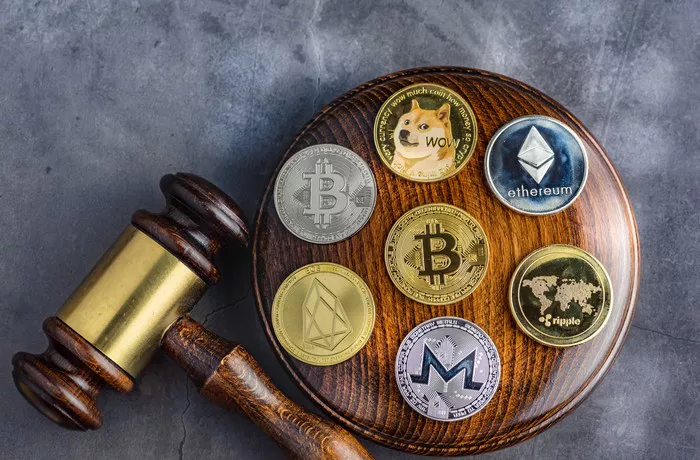In the ever-evolving landscape of cryptocurrencies, USD Coin (USDC) has emerged as a significant player. It is a stablecoin, pegged to the value of the US dollar, which offers a relatively stable store of value compared to more volatile cryptocurrencies like Bitcoin and Ethereum. For those interested in trading USDC, it is essential to know the various platforms and exchanges where such trading can take place. These platforms vary in terms of features, security, fees, and user experience. Understanding where to trade USD Coin can help investors and traders make more informed decisions and manage their portfolios effectively.
Cryptocurrency Exchanges
1. Major Global Exchanges
One of the primary places to trade USD Coin is on major global cryptocurrency exchanges. Binance is a leading exchange that offers a wide range of trading pairs involving USDC. To start trading on Binance, you first need to create an account. This involves providing basic personal information such as your name, email address, and setting a password. After account creation, you must complete a verification process, which may include submitting a government-issued ID and a selfie for identity verification. Once verified, you can deposit funds into your Binance account. If you already have USDC, you can transfer it directly. If not, you can deposit other cryptocurrencies or use fiat currency options like bank transfer or credit/debit card (availability may vary depending on your region) and then exchange it for USDC. Binance offers a user-friendly trading interface with advanced charting tools and order types. You can trade USDC against other major cryptocurrencies like Bitcoin (BTC/USDC), Ethereum (ETH/USDC), or a variety of altcoins.
Another well-known exchange is Coinbase. It is popular, especially among beginners, due to its intuitive interface and strong regulatory compliance. To trade USDC on Coinbase, you create an account and follow the verification steps, which are similar to other exchanges. Coinbase allows you to link your bank account or use a debit/credit card to deposit USD, which you can then convert to USDC. You can also deposit other cryptocurrencies and trade them for USDC. The trading pairs available on Coinbase include popular ones like BTC/USDC and ETH/USDC. Coinbase provides educational resources and customer support to help users understand the trading process and manage their accounts.
2. Regional and Specialized Exchanges
In addition to the global giants, there are regional and specialized exchanges. Kraken is a well-regarded exchange, especially in Europe and North America. It offers a diverse set of trading pairs with USDC. To trade on Kraken, you register an account, complete the verification process that typically requires proof of identity and address, and then deposit funds. You can deposit USDC directly if you have it or use other methods like bank transfer or cryptocurrency deposits to obtain USDC. Kraken has a more advanced trading interface suitable for experienced traders, with features like margin trading and advanced order types.
Some specialized exchanges focus on specific aspects of the cryptocurrency market. For example, Bitfinex is known for its high liquidity and a wide range of trading pairs. It offers trading in USDC against many different cryptocurrencies. To start trading on Bitfinex, you need to create an account, which involves a detailed verification process. You may need to provide additional information about your trading experience and financial situation. Once your account is set up and funded, you can trade USDC in various trading pairs. Bitfinex also provides advanced trading tools like customizable charts and trading bots for more sophisticated trading strategies.
Decentralized Exchanges (DEXs)
1. How DEXs Work
Decentralized exchanges like Uniswap and SushiSwap also provide a platform for trading USD Coin. These DEXs operate on blockchain technology and do not rely on a central authority. To trade USDC on Uniswap, for example, you need to have a compatible cryptocurrency wallet, such as MetaMask. You connect your wallet to the Uniswap interface. If you want to trade USDC for another cryptocurrency, say Ethereum, you simply select the USDC/Ethereum trading pair. The exchange rate is determined by an automated market-making algorithm based on the supply and demand of the assets in the liquidity pools. You then approve the transaction in your wallet and execute the trade. The advantage of DEXs is that they offer more privacy and control over your funds as you are directly interacting with the blockchain and not relying on a third-party custodian.
2. Benefits and Challenges of DEXs
The main benefit of using DEXs is the enhanced security and privacy. Since there is no central entity holding your funds, the risk of a hack or misappropriation of funds by a third party is reduced. Additionally, DEXs are often more resistant to regulatory interference as they operate in a more decentralized manner. However, DEXs also have challenges. The user experience can be more complex compared to centralized exchanges, especially for beginners. The trading volume and liquidity on DEXs may be lower than on major centralized exchanges, which could result in wider spreads and slippage. For example, if you want to trade a large amount of USDC on a DEX, you might not find enough liquidity in the trading pool, leading to a less favorable exchange rate than you would get on a larger exchange.
Peer-to-Peer (P2P) Platforms
1. Functioning of P2P Platforms
Peer-to-peer platforms such as LocalBitcoins and Paxful can also be used to trade USD Coin. These platforms connect individual buyers and sellers directly. On LocalBitcoins, for instance, you can search for sellers who are offering to sell USDC in exchange for other cryptocurrencies or fiat currency. The sellers list their offers, including the price and the payment methods they accept. Payment methods can include bank transfer, cash deposit, or even gift cards. As a buyer, you can review the offers, choose a seller that suits your needs, and then initiate the transaction. The platform usually acts as an escrow service, holding the USDC until you confirm that you have received the payment or vice versa. This helps protect both parties from fraud.
2. Advantages and Disadvantages of P2P Platforms
The advantage of P2P platforms is the flexibility in payment methods. This can be useful if you have restrictions or preferences regarding payment options. For example, if you want to use cash to buy USDC, a P2P platform might be a good option. However, P2P platforms also have disadvantages. The prices on P2P platforms can be more variable and often higher than on exchanges due to the lack of a centralized market mechanism. There is also a higher risk of encountering scammers or unreliable counterparties, although the escrow service helps mitigate this risk. You need to be careful and thoroughly vet the other party before entering into a transaction.
Brokerage Services
1. Traditional and Crypto-Specific Brokers
Some traditional brokerage firms and crypto-specific brokers offer the ability to trade USD Coin. ETRADE is a traditional brokerage that has started to explore cryptocurrency offerings. To trade USDC through ETRADE, you need to have an account with them. The account opening process is similar to opening a regular brokerage account, with identity verification and funding requirements. Once your account is funded, you can look for the option to trade USDC. However, the selection of cryptocurrencies available through traditional brokers like E*TRADE may be more limited compared to dedicated cryptocurrency exchanges.
Crypto-specific brokers like eToro are also popular. eToro offers a social trading platform where you can follow and copy the trades of other successful traders. To trade USDC on eToro, you create an account, complete the verification process, and deposit funds. You can then search for USDC in the trading interface and place your order. eToro has a user-friendly interface and provides a range of trading tools and features, making it suitable for both beginners and more experienced traders. The advantage of using a brokerage service is the added layer of regulation and the familiarity for traditional investors. They also often provide customer support and educational resources.
2. Considerations When Using Brokers
When using brokerage services to trade USDC, it is important to consider the fees. Brokers may charge a commission on each trade or have other fee structures that could impact your trading profits. For example, a broker might charge a flat fee per trade or a percentage of the transaction amount. Additionally, the range of trading pairs and the availability of advanced trading features may be more limited compared to dedicated cryptocurrency exchanges. You need to assess whether the benefits of the regulatory environment and the support provided by the broker outweigh the potential drawbacks in terms of fees and trading options.
OTC (Over-the-Counter) Desks
1. Role and Operation of OTC Desks
For large-volume traders, OTC desks can be an option for trading USD Coin. OTC desks like Circle Trade (operated by Circle, the issuer of USDC) provide a platform for institutional and high-net-worth individuals to trade large amounts of cryptocurrencies off the public exchanges. To trade through an OTC desk, you typically need to have a significant amount of capital and establish a relationship with the desk. The OTC desk will provide customized trading solutions, including price quotes and execution services. They can handle trades that might otherwise disrupt the market if executed on a public exchange due to their large size. For example, if an institutional investor wants to buy or sell millions of USDC, an OTC desk can arrange the trade without causing significant price fluctuations on the public market.
2. Benefits for Large-Volume Traders
The main benefit of using an OTC desk is the ability to execute large trades with minimal price impact. OTC desks also offer more privacy and personalized service. They can provide access to a wider range of counterparties and liquidity sources, which is crucial for large-volume trades. However, OTC desks are not suitable for small or retail investors as they require a significant amount of capital and have a more exclusive nature.
Considerations Before Trading
1. Security and Regulation
Before trading USD Coin on any platform, security and regulation are crucial considerations. Look for platforms that have robust security measures such as two-factor authentication, cold storage for cryptocurrencies, and regular security audits. For example, exchanges like Binance and Coinbase have made significant investments in security to protect user accounts and funds. In terms of regulation, it is important to choose a platform that complies with relevant laws and regulations in your jurisdiction. This provides you with some recourse in case of issues such as fraud or loss of funds.
2. Fees and Charges
Fees and charges can vary significantly between different trading platforms. Exchanges may charge a trading fee, which is usually a percentage of the transaction amount. Some exchanges have tiered fee structures based on trading volume. DEXs may have different types of fees, such as a fee for using the liquidity pool or a gas fee for executing transactions on the blockchain. P2P platforms may charge a fee for using their escrow service. Brokers may have commission fees or other charges. It is essential to understand these fees and calculate how they will affect your trading profits. For example, if you are a frequent trader, a platform with high trading fees could significantly reduce your overall returns.
3. Liquidity and Trading Volume
Liquidity and trading volume are important factors to consider. Higher liquidity and trading volume generally mean narrower spreads and better price execution. On exchanges like Binance and Coinbase, which have high trading volumes in USDC trading pairs, you are more likely to get a favorable price when trading. On the other hand, on platforms with lower liquidity, such as some DEXs or P2P platforms, you may experience wider spreads and slippage, which could result in less favorable trading outcomes.
Conclusion
There are multiple options for trading USD Coin, each with its own set of features, benefits, and drawbacks. Cryptocurrency exchanges offer a wide range of trading pairs, user-friendly interfaces, and varying levels of security and regulation. Decentralized exchanges provide enhanced privacy and control but may have lower liquidity and a more complex user experience. Peer-to-peer platforms offer flexibility in payment methods but come with higher price variability and counterparty risks. Brokerage services provide a more regulated environment and support but may have limited trading options and higher fees. OTC desks are suitable for large-volume traders but are exclusive and require significant capital. Before choosing a platform to trade USD Coin, it is essential to consider security, fees, liquidity, and regulatory compliance. By carefully evaluating these factors, traders and investors can make more informed decisions and navigate the world of USD Coin trading more effectively.
Related topics:
































